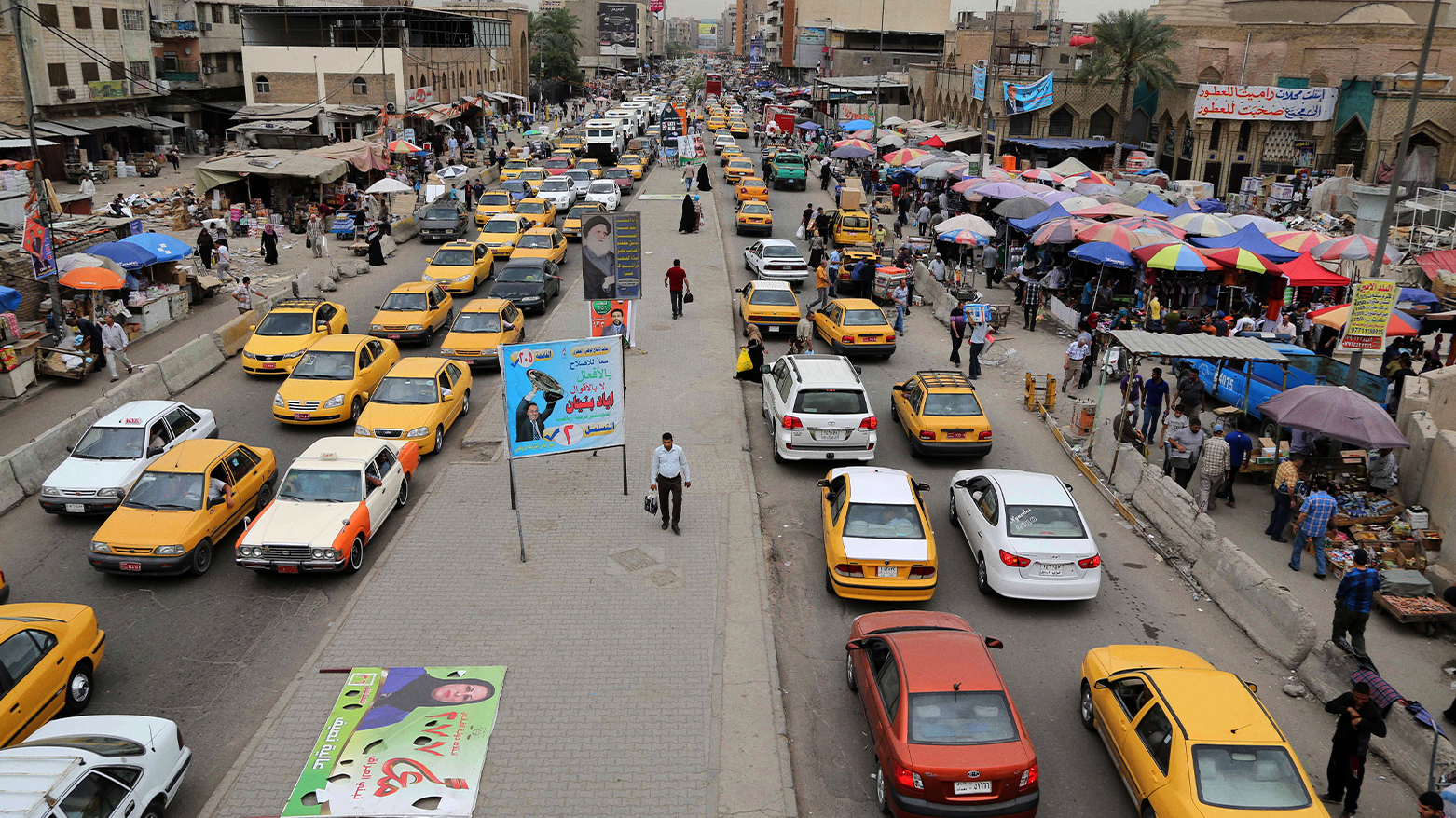Baghdad suffers from traffic congestion, pollution
Baghdad's environment is dangerously polluted due to the increase in the number of vehicles and emissions of toxic gases, which are the sources of various diseases.

ERBIL (Kurdistan 24) – The Iraqi Ministry of Environment states that 60 percent of Baghdad's environmental pollution is caused by car emissions. Meanwhile, the Iraqi government has changed the working hours of offices in the latest decision to reduce congestion on the streets of the capital.
Baghdad's environment is dangerously polluted due to the increase in the number of vehicles and emissions of toxic gases, which are the sources of various diseases.
According to Iraqi environmental officials, car exhaust accounts for more than 60 percent of Baghdad's emissions, and the risks are increasing, especially carbon dioxide, nitrogen, and sulfur emissions that cause various respiratory diseases.
The impact is due to the increase in the number of vehicles; there are more than 3 million vehicles in Baghdad, a number that exceeds the capacity of its roads.
Baghdad's roads and bridges have not been widened for 30 years, and cars are imported randomly, with about 3.7 million cars in Baghdad alone, said Lieutenant General Tareq Ismail, director of traffic.
“Of the 20,000 traffic police, about 5,400 are on duty daily. They are responsible for reducing congestion on the streets of the capital” highlighted the Lieutenant General.
Meanwhile, Roads and Bridges Directorate Hussein Jasim at the Ministry of Construction, Municipalities Housing, and Public Work, said there are many reasons for congestion, including the increase in the number of vehicles and the lack of public transportation, as citizens rely 100% on private transportation.
The Iraqi government has taken new measures to solve the traffic crisis in the country, especially in Baghdad, including official work in all state institutions, universities, and schools divided into four different times and will be applicable on as a three-month trial.
This new measure obliges ministries and agencies to use buses to transport employees, as well as building high bridges for citizens to cross near colleges and hospitals.
The decisions also include the elimination of street violations, especially in Shorija, Baghdad al-Jadeeda, and markets; increasing the customs duty on imported vehicles and opening closed roads in some areas of Baghdad, increasing the price of premium gasoline to (850) dinars per liter, and super gasoline to (1,250 dinars) per liter.